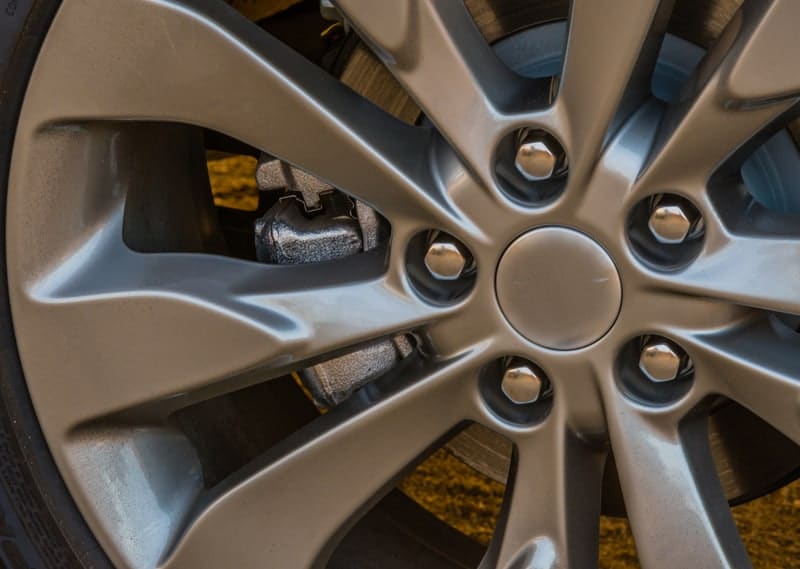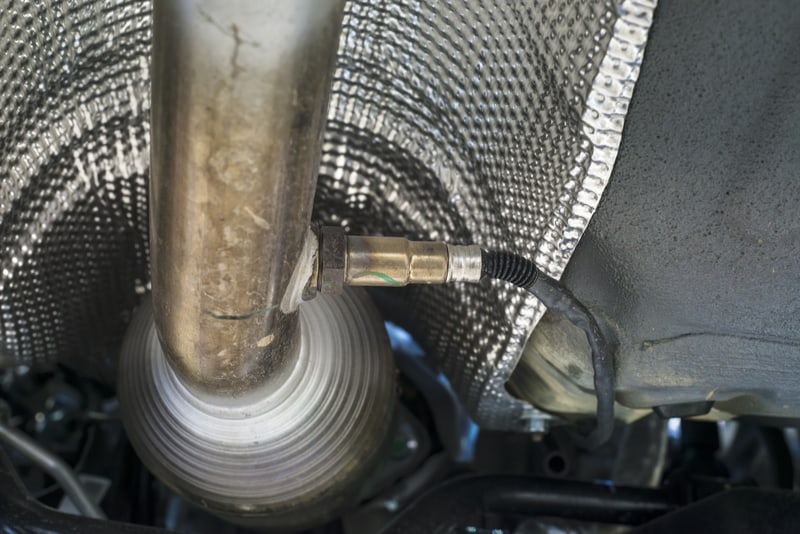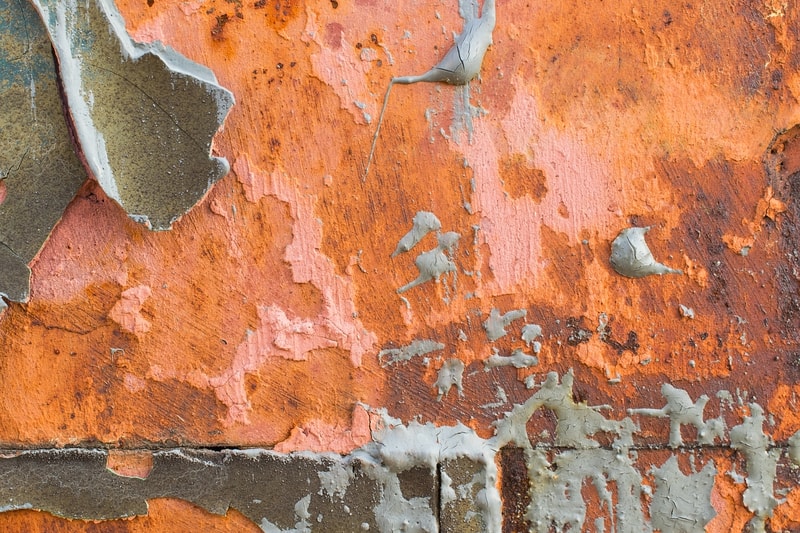“This post contains affiliate links, and I will be compensated if you make a purchase after clicking on my links.”
A cracked wheel is undoubtedly bad news. Depending on the type and severity of the wheel crack, it can make it mildly hazardous to outright dangerous to drive your vehicle. Since most alloy wheels are made from aluminum, welding the crack would seem to be a viable solution. But, should you do it?
There are obvious complications to the idea of welding a cracked aluminum rim. Let’s explore them in detail.
Why Do Aluminum Wheels Fail?
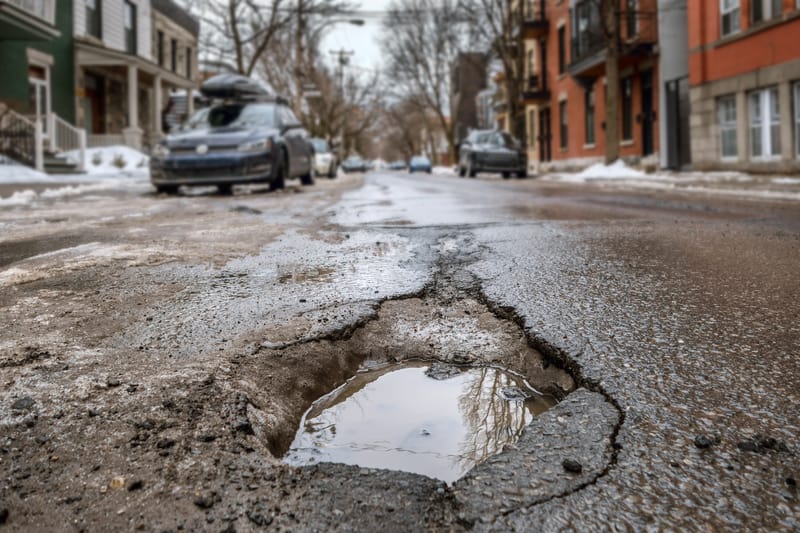
Like any metal, aluminum fails when it experiences a strong enough impact. There are several causes that might contribute to a cracked aluminum wheel. Some of them include:
Hitting a Deep Pothole
Potholes are notorious for cracking alloy wheels. Although not every pothole can affect wheel alloys in the same way, there are numerous variables involved that ultimately lead to wheel cracking.
Usually, tires take the brunt of these sunken spots on the road. The rough edges can slice the rubber, causing a flat. However, wheels themselves can be damaged by especially deep potholes or if the tire is low on air pressure. In such cases, the wheels absorb most of the impact force, causing chipping or cracking.
Under-Inflated Tires
The right amount of air inside the tire not only provides a comfortable ride and good gas mileage but also creates a barrier between the rough road and the rigid wheel. However, less air means the tires will push the wheels when the vehicle moves over bumps or uneven terrain.
If you continue driving without the recommended tire pressure, the wheel constantly experiences impact forces from the road and will gradually begin to deform. Eventually, this small deformation will grow into cracks.
Driving on a Flat Tire
Consider this one as an extreme case of under-inflation, where there is no air left in the tire. Driving with a flat tire can easily crack an aluminum wheel. If you’ve got a flat tire, make sure to keep your vehicle speed to a minimum and avoid rough patches on the road.
Going Over a Curb
Driving your vehicle too close to a curb can cause the wheel’s edge to catch the curb and become damaged. Curbs stand tall from the road and often have sharp edges. When the tire goes over the curb, the vehicle weight acting on the wheel can cause the tire to compress and force the wheel to take the impact. As a result, if you accidentally go over a curb with some speed, the impact of the curb will likely lead to cracks on your wheels.
Should You Weld a Cracked Aluminum Wheel?
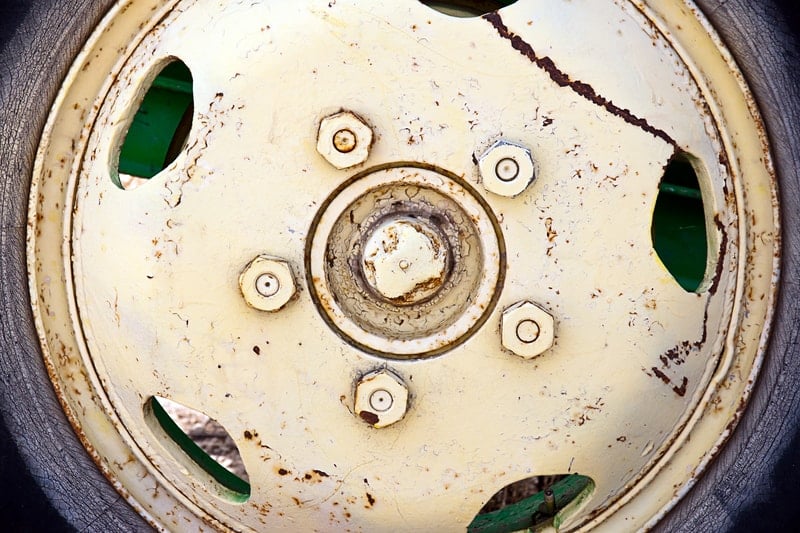
The answer to this question depends on several factors, such as the crack location, the depth of the crack, and the number of cracks in total.
The Popular Opinion: Discard the Wheel
Most mechanics would recommend discarding a cracked aluminum wheel, and there’s a reason for that. Fixing a broken wheel is difficult. You can try welding it together, but there are no guarantees about the wheel’s structural integrity and performance once you’ve welded all the cracks. In addition, there may be instances when the cost of welding would go beyond what it would cost you for a new wheel.
Alternative: Weld the Wheel – But It’s Complicated
It’s possible to weld a cracked aluminum wheel if you choose to; however, you’ll need advanced welding skills to get the job done right. If you’re considering welding your aluminum wheel, here are some of the things to consider before you start.
First, check the wheel to identify the crack location:
The front face of the wheel: Welding is not advisable in this location since the crack has already compromised the structural strength of the wheel. Welding cannot restore the necessary structural strength.
Spoke of the wheel: If the crack formation is on one of the spokes, you should not weld it together. Again, this is because the crack has already compromised the wheel’s structural integrity.
Crack in the wheel-spin direction: If the crack is along the wheel line, i.e., parallel to the spin direction, you should not weld the crack. If you do so, there is a high chance that you will increase the wheel’s width. This increase in the width will cause problems with your tire and cause the wheel to slip.
Crack perpendicular to the spin direction: If the crack is at right angles to the spin direction, welding is possible; however, you will need to make sure to remove excess material from the wheel to compensate for the weld. If the crack is small and close to the edge, you can weld the crack to prevent it from growing. However, it is best not to invest time if the wheel has multiple large cracks around the wheel.
Welding Considerations
Before welding, straighten the wheel to get rid of any bends that may have occurred during the impact.
When dealing with aluminum alloys, TIG welding works best compared to MIG welding, since MIG cannot produce a thick enough bead, resulting in a weaker weld.
Once you complete the weld, the wheel will have a bead along the crack, which you can choose to smooth out by grinding. Usually, it is best to grind only the visible side of the bead while keeping the bead under the wheel intact to provide additional structural support.
Final Words
Whether you can weld an aluminum wheel or not depends on how much damage the crack has caused to the structural integrity of the wheel. When the crack forms on the spokes, front face, lip, or edge of the wheel, welding is not an option because the wheel’s structural integrity is no longer strong enough to sustain force. The deformation caused by the cracks will most likely lead the wheel to fail, even if you attempt to cover the cracks with weld.
However, if the crack’s location is not anywhere near the failure points, welding can repair your cracked alloy wheel. However, it’s best to compare the cost of welding to that of buying a new wheel to decide what’s more practical and cost-effective.
References:
Should I Weld My Cracked Aluminium Wheel? | Precision Wheels (precisionwheels.com.au)
How to Repair a Cracked Alloy Wheel | Autodesk Instructables (instructables.com)
Welding Aluminum Wheels: To Bead or Not to Bead? | LiveAbout (liveabout.com)
Is It Safe to Drive With a Cracked Rim? | Motors On Wheels (motorsonwheels.com)
Can You Fix a Cracked Aluminum Rim | askinglot.com

